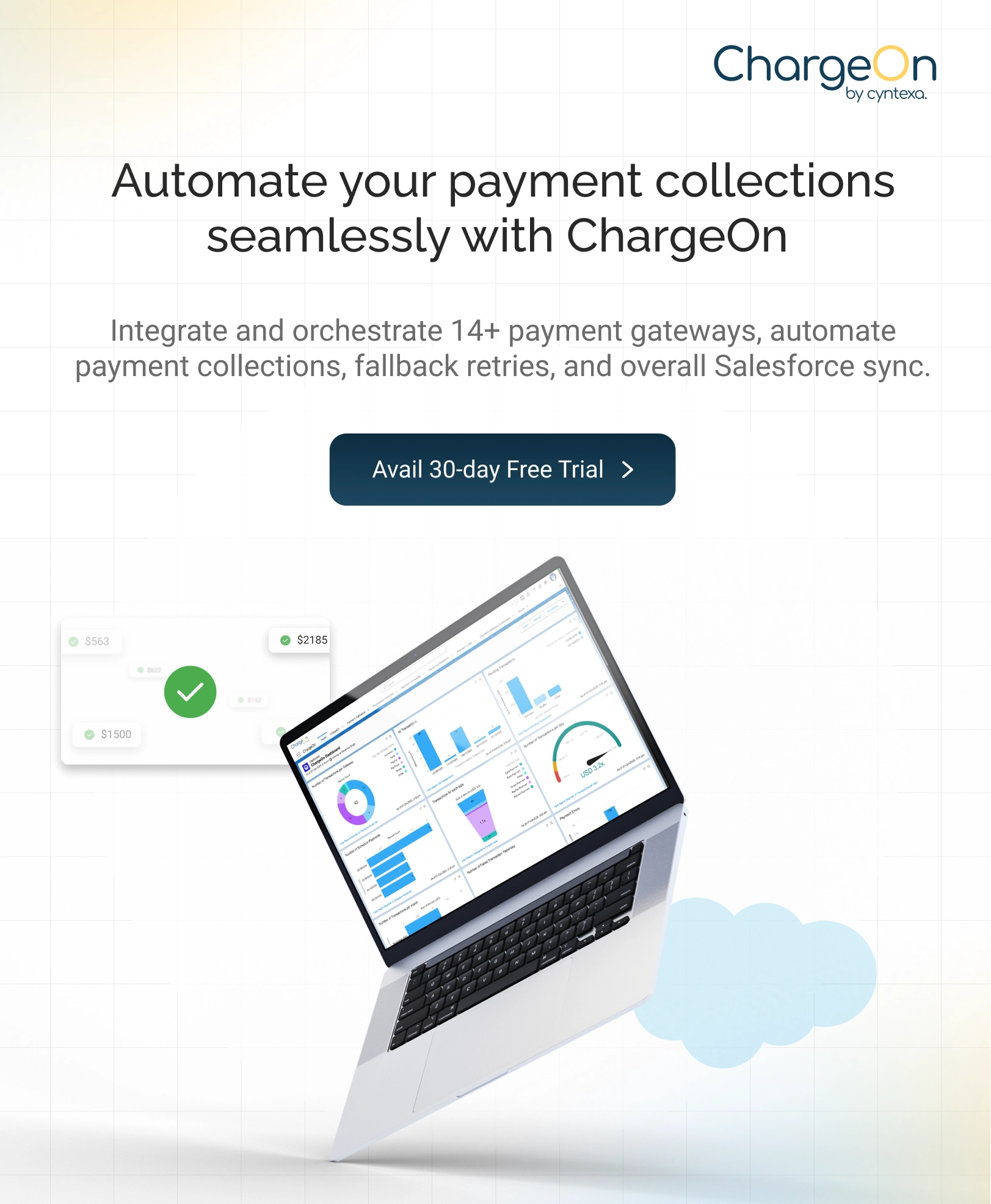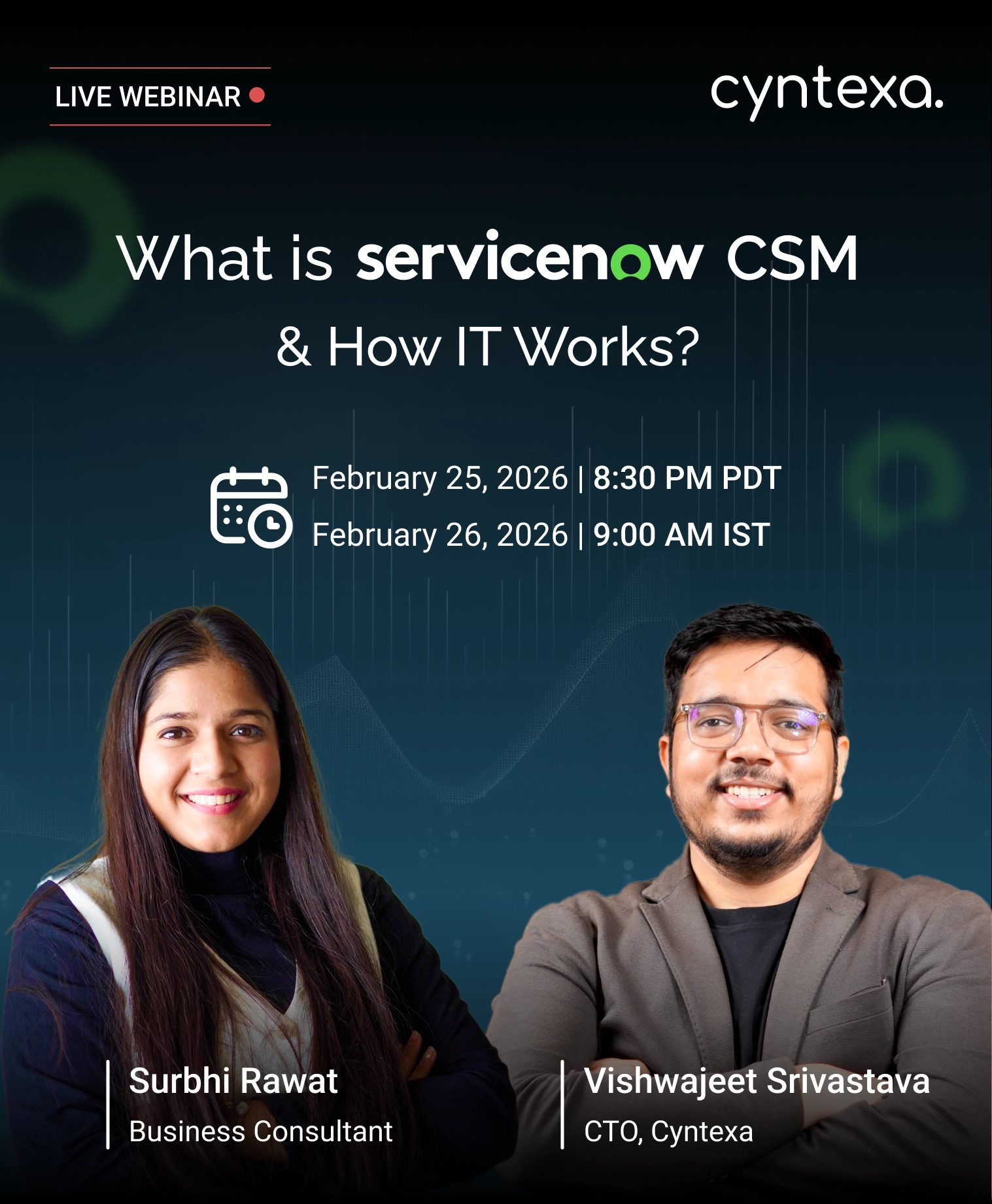Skills To Look for When Hiring a Salesforce Developer
Table of Contents
Salesforce offers out-of-the-box capabilities for all, but to shape the platform into a perfect fit for your unique processes, you need a dedicated Salesforce developer.
The right developer possesses a combination of technical skills to meet your tech stack requirements and soft skills that enable effective collaboration with business stakeholders. This balance will help you achieve optimal results and facilitate business growth.
In this blog, we will guide you through the essential technical and soft skills that every Salesforce developer should possess, along with tips on how to evaluate candidates effectively.
By the end, you will feel confident making the right hire and setting your team up for long-term success.
Let’s get started!
Technical skills to look for when hiring a Salesforce developer
Here is a list of key technical Salesforce developer skills:


Salesforce platform expertise
Salesforce platform expertise is a crucial skill to look for when hiring a developer. With an in-depth understanding of Salesforce CRM, developers can effectively leverage it and customize its out-of-the-box features and capabilities to meet your specific business needs.
The developer must have an understanding related to platform architecture, limits, data security models, and more. They should be aware of when to use drag-and-drop tools and when to build using custom code.
How to assess candidates for this skill set?
- Use a mix of technical questions, hands-on tasks, and discussions of past projects.
- Look for Salesforce certifications such as Platform Developer I/II and more. These certifications act as proof that the developer has passed Salesforce standards and has gained knowledge of the same.
- Ask them to outline solutions for real business scenarios such as automating customer onboarding, integrating a third-party system, and more.
- Offer debugging challenges, ask them to identify a failing process, or improve automation flows.
Apex skills
Apex is a programming language developed by Salesforce, and a must-have skill to even get started with it. This helps developers build business logic and Salesforce applications and extend the functionality of the platform, which goes beyond the power of point-and-click tools. They can create workflows and perform integrations by coding in this language, which is similar to Java.
Hence, look for a candidate who is proficient in writing clean, bulkified code to avoid crashing the production Orgs.
Tips to assess the candidate for Apex expertise
You can walk candidates through an existing piece of Apex or Visualforce code. Ask them to explain optimization points and refactoring opportunities.
Test their theoretical knowledge by asking basic, advanced, or scenario-based questions such as:
- What are the different ways to call Apex classes?
- You can expect answers including anonymous blocks, triggers, and web services.
- What is recursion in Apex, and how can you prevent it?
- Expect answers such as using static variables, trigger handler classes, and more.
- Describe a complex trigger scenario that you have worked on. What challenges did you face and how did you overcome them?
- Your trigger is hitting the SOQL query limit in large data loads. How would you redesign it to stay within limits?
- Expect answers such as explanations of SOQL limits, using collections to pre-fetch data, batchable, queueable, or async Apex.
Apart from these, you can conduct technical coding challenges.
- Ask them to write bulkified code, e.g., update a custom field on related records.
- Look for proper use of SOQL, governor limit avoidance, and unit test coverage.
- Ask them to create a simple custom page backed by an Apex controller. It could be a list of accounts with a filter and action buttons to update records.
Lightning Components (Aura and Lightning Web Components)
Aura and Lightning Web Components are web development frameworks that allow developers to create UIs using a combination of HTML and CSS. It is a required skill to create web pages, customize the components of those pages, and extend the standard Salesforce interface. Therefore, you need a professional with this expertise to create visually appealing yet user-friendly UIs that enhance your user experiences.
Earlier, Visualforce was used to create UIs in Salesforce, but due to heavy reliance on server-side rendering, slow performance, and maintainability issues, it was replaced by modern and efficient solutions, which are Aura and LWC components. These components are more lightweight, faster, and easier to maintain.
How would you assess these skills?
Walk the candidates through a piece of code and ask for areas of improvement. You can ask questions like:
- When to use Aura components and when to use LWC?
- How would you embed LWC in Aura or vice versa?
- What are some best practices for writing efficient LWC code? And more.
Scenario-based questions or code-based solutions:
- Build an LWC to fetch a record by ID and show errors.
- Your component needs to show hundreds of records. Create a system to only load more records as the user scrolls or clicks “Load more.”
Data modelling and data management skills
A Salesforce developer with relevant data modeling skills can structure your objects, fields, and relationships appropriately and accurately, offering a clear and understandable view. This would help eliminate data silos and duplication issues. Moreover, if you have a messy data model, a professional can fix the same.
With proper data management skills, you can ensure optimal data quality and ease of Salesforce data migration. The professional would know how to leverage the data loader and ETL (Extract, Transform, Load) tools that would contribute to reducing errors and improving reporting accuracy.
Professionals possessing these skills ensure your Salesforce Org stays organized and secure.
Tips to assess these skills in a candidate
Ask them about how they built data models, enforced quality, handled migrations, or managed data lifecycles. You can question them related to core concepts, relationship types, and data security. Here are a few examples:
- What are the core components of the Salesforce data model?
- Define different relationships, and when would you use them?
- Explain how sharing rules affect record visibility.
- Provide a sample ERD (Enterprise Relationship Diagram) or Salesforce schema. Normalize it, index it, or design it for large data volumes.
- Ask them to draw a rough schema.
Integration skills
To scale beyond Salesforce capabilities, you need a Salesforce professional who excels in integrating third-party applications securely into your platform. Be it ERP systems, payment processors, analytics platforms, or custom tools, a skilled developer can design, sync, and map fields and objects, ensuring optimal two-way communication of data between systems.
How can you assess integration skills in a developer?
Strong integration skills mean understanding mapping, validation, and governor limits. Therefore, ask candidates about when to use REST/SOAP APIs or middleware tools.
Ask experience-based questions, such as:
- Describe a time you performed Salesforce integration with another system.
- What tools and architecture did you use?
- What challenges did you face, and how did you deal with them?
- Which APIs did you use, and why was it your choice?


Apart from the must-have technical skills, there are some niche skills that developers possess specific to Salesforce products. Therefore, if you are planning to hire a niche Salesforce cloud expert, you must have a look at the key skills we have mentioned below.
Technical Skills by Salesforce Cloud Specialization
For Salesforce B2C Commerce Cloud
When hiring a Salesforce B2C Commerce Cloud developer, start by verifying their certification. Beyond that, look for these core capabilities:
- Ensure the developer is familiar with custom cartridge development, enabling independent feature updates and faster troubleshooting.
- They can use SFRA (Storefront Reference Architecture) to run headless commerce. It separates the front end from the back end, which helps in loading pages quickly and allows easy integration with modern user interface frameworks.
- Can optimize price books for accurate and real-time pricing across currencies and promotions to reduce errors and empower marketing agility.
- Can manage high volumes of catalogs efficiently to ensure speedy product browsing, keeping your site responsive during peak traffic conditions.
- Can manage a composable commerce architecture to avoid vendor lock-in.
For Salesforce B2B Commerce Cloud
Validate their B2B Commerce Cloud developer certificate and expect the following capabilities:
- A developer should be able to customize reordering workflows for B2B buyers. This streamlines repeat purchasing and reduces friction while improving the chances of recurring orders.
- They can configure custom catalogs and product hierarchies to deliver tailored product visibility and simplified navigation to different buyer segments, improving user experience and conversion.
- Scale and optimize high-volume transactions in order to ensure performance and reliability during peak loads from large B2B orders.
For Salesforce Marketing Cloud
For this role, the developer must possess Salesforce Marketing Cloud developer certification. You must look for the following capabilities to make the right decision:
- The candidate can develop personalized campaigns and automate customer journeys using tools like Journey Builder and Automation Studio. This helps deliver timely, personalized, and scalable campaigns.
- Developers who can craft visually appealing and responsive email templates. This ensures that campaigns perform efficiently across all channels, boosting open rates, clicks, and brand consistency.
- Use AMPscript (a scripting language to create highly personalized and dynamic email content) to personalize content, format data, and inject real-time information. Also, to manage dynamic elements in emails, landing pages, and SMS.
- Can analyze performance metrics such as open rates, click-through rates, and conversion metrics, and optimize campaigns based on insights for continuous improvement and maximizing marketing effectiveness through measurable results and iterative testing.
Agentforce developer/specialist
Having a developer with Agentforce expertise can transform your business like never before. This will enable the automation of repetitive tasks, boost service efficiency, and handle complex queries from your employees and customers.
With a developer having prompt engineering skills, your team can craft precise, structured prompts that guide AI agents to generate accurate, context-rich responses. It improves output quality by ensuring agents understand the intent and enabling nuanced interactions.
The developer should be able to perform RAG (retrieval augmented generation) implementation. This integrates enterprise data, whether structured or unstructured, via databases and retrieval systems, and then feeds it into LLMs with relevant context.
They should be proficient in using Agentforce studios such as Agent Builder, Prompt Builder, Agent Actions, and Testing Center. This facilitates rapid agent development, ensures consistent quality and compliance, enables customized actions across Slack, flows, or Apex, and integrates testing and CI (Continuous Integration) right into the process.
Soft skills to look for when hiring a Salesforce developer
Key soft skills to consider when hiring a Salesforce developer:


Business acumen
Business acumen is the ability of an individual to understand the business scenario. As to how the organization generates revenue, how it competes with its competitors, and how it delivers value to its customers.
This skill set showcases how well the developer can understand the business challenges, needs and translate them into technical solutions. With this understanding, they can design solutions, features, and integrations and make decisions that help your organization scale and grow. As a result, a candidate having this skillset can be a strategic asset for your business.
How would you assess the business acumen of a candidate?
Ask them situation- or scenario-based questions that differ based on business departments. Such as:
- Can you share an instance where you understood a business problem and designed a Salesforce solution for it?
- The sales team wants to automate a series of tasks that reduce human dependency for less-priority tasks. What could be the possible solution for this?
- How do you keep up with trends in our industry?
- You get conflicting requirements from the Marketing and Sales departments. How do you plan to build a solution that caters to their needs?
Communication skills
This is a core soft skill for a developer. It is the ability to explain technical concepts to a non-technical audience with ease, including both your internal teams and clients.
Communication with internal teams helps align goals, detect issues at an early stage, and adopt an agile approach altogether. With external parties, it builds confidence and trust by being transparent, clear, and respectful.
A candidate excelling at this skillset can:
- Understand project requirements and avoid misunderstandings that can lead to work or project delays.
- Collaborate efficiently with everyone, be it departmental or technical teams or the client, and ensure they are aligned on the same page.
- Resolve any disputes or disagreements.
- Build trust and satisfaction with customers.
How would you assess this skill?
During the interview process, observe how well the candidate is listening to you and how accurately they are responding or answering the questions. If they are confused, whether they are impulsive to answer it or ask for clarification. Another aspect to notice is, if you have given feedback, how effectively have they taken it?
You can ask them to explain a complex technical concept simply. Such as the governor limits, Salesforce integration approaches, and more. Observe, were they able to explain it in layman’s terms without losing the accuracy of the concept?
Ask them to enact a situation where they are assigned a particular role. For example, they need to propose a Salesforce solution to a mock stakeholder. This would reveal their tone, pace, and content for different audiences.
Teamwork skills
Teamwork is the ability to collaborate and work together towards achieving a common goal. This skillset shows that a developer’s objectives align with organizational goals, rather than being solely self-focused. While also helping other team members when needed and respecting differing opinions.
This skill set is crucial, as software solutions cannot be built alone. It requires collaboration, peer code reviews, shared debugging, mentorship, and group problem solving that prevent errors, and conflicts, and help finish projects on time.
For organizations working with remote Salesforce developers, building effective collaboration strategies becomes even more important. Here are some practical tips to better collaborate with remote Salesforce developers.
How to assess teamwork in candidates?
Ask questions such as:
- Describe a past scenario where you overcame a team challenge. What exactly did you do?
- How did you finish a tight-deadline project with your team? What was your role? How did your team ensure optimal quality despite time constraints?
- Can you share an example of how you have given or received feedback within a team?
- Share an instance where you have delegated responsibilities to team members and ensured they have effectively contributed.
Apart from this, you can connect with the candidate’s colleagues and seek a review or conduct a mock team exercise to observe how they interact with others.
Adaptability skills
Adaptability means being flexible, quick to adjust, and eager to learn what’s new in the Salesforce ecosystem. Therefore, an adaptable developer stays informed about the yearly updates released by Salesforce. Someone passionate about learning will actively master new features and innovations.
Adaptable developers easily manage last-minute changes while maintaining the quality of their solutions.
How to assess adaptability in the candidate?
You can review their resume and portfolio. Look for phrases like ‘upgraded to the latest Spring release,’ ‘migrated to a new feature,’ or completed a new certification. These examples showcase real adaptability.
Ask behavioral questions. Here are some examples:
- How do you keep yourself updated with the latest releases and innovations in Salesforce?
- What were the key highlights of the last update?
- Describe a time when the project requirement changed suddenly. What did you do? How did you handle it, and was the outcome satisfactory?
- Tell us about a time when you learned something new in Salesforce and put it into practice.
Problem-solving skills
Problem-solving is the ability to identify issues, break them down, and come up with effective solutions. It goes beyond coding. It includes diagnosing a problem and creating a reliable yet scalable solution that works across the platform.
A Salesforce developer having this skill can identify issues at early stages, simplify them, and build strong solutions to avoid downtime and unexpected bugs.
How would you assess the candidate for this skill?
- You can start by asking behavioral questions such as “Tell me about a time when you solved a Salesforce issue, and walk me through the steps.”
- Give them a real business challenge and ask them to identify the problem and what a possible solution for it is.
- Provide them with a broken piece of code and ask them to diagnose issues and suggest fixes.
Attention to detail skills
Attention to detail means noticing and addressing small but important elements while designing solutions. These elements could be consistent formatting and identifying logical errors before they make a bigger impact. A small typo can cause unexpected errors, which can result in deployment failures.
Look for developers who choose strategic variable names, write clean and indented code, and follow the best practices to make the code more understandable. With this skill, they can catch data mismatches, security issues, and integration bugs before they impact users.
How would you assess this skill in the candidates?
Exercise a coding challenge and look for typos, formatting, and indentation errors in it. Consider asking about a time when their efforts towards attention to detail prevented a major error.
Time management skills
Time management is the ability to plan, organize, and use time effectively. A developer proficient in this skill prioritizes tasks, respects the project timeline, and knows how to balance multiple tasks. If any unexpected challenge arises, they can manage their schedule calmly.
How would you assess this skill?
Use the STAR method to assess the candidate’s time management skills.
- S for Situation → ask what the situation was.
- T for Task → ask what they were expected to do.
- A for Action → ask what action they took.
- R for result → What was the outcome?
Furthermore, you can ask behavioral questions based on juggling between multiple deadlines, how would they handle it? Whether they ever missed a deadline and how they cope with it?
Present a scenario-based question. For example, if they have three conflicting tasks, and a new bug appears, how would they handle it? You can provide them with a list of tasks and ask them to arrange them in order of priority.
Consider asking whether they leverage any tool that helps them manage their tasks and time.


Conclusion
There you have it! These are some of the key technical and soft skills to consider when hiring a Salesforce developer. Whether you hire a dedicated Salesforce developer or choose any other engagement model, these skills are a must-look-for.
The questions and tips mentioned above will certainly assist you in making the right decision. Once you have hired a developer, it is essential to follow onboarding best practices to create a welcoming and supportive environment.
If you’re looking for Salesforce developers who excel in these skills, look no further! Hire Salesforce developers from Cyntexa. Our developers have expertise across various Salesforce clouds, platforms, APIs, integrations, and additional tools and utilities. Schedule a consultation call today.
Don’t Worry, We Got You Covered!
Get The Expert curated eGuide straight to your inbox and get going with the Salesforce Excellence.
AUTHOR
Shubham
Service Cloud, Salesforce Managed Packages
With over 5 years of experience, Shubham specialize in curating solutions on Salesforce Service Cloud, Nonprofit Cloud, Consumer Goods Cloud, Managed Packages, and ServiceNow ITSM. He designs and implements end-to-end service solutions that improve operational workflows and ensure seamless integration across enterprise systems. Shubham’s expertise lies in creating secure, efficient, and agile platforms tailored to unique business needs.


Cyntexa.
Join Our Newsletter. Get Your Daily Dose Of Search Know-How









